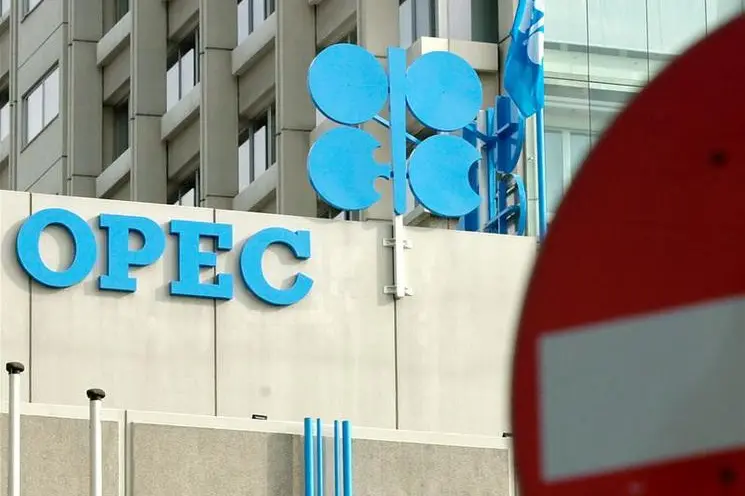PHOTO
LONDON - Saudi Arabia has negotiated its OPEC minefield. Riyadh’s twin objectives from the meeting of the Organization of the Petroleum Exporting Countries in Vienna were to raise output and not prompt Iran, its perpetual antagonist, to flounce out. On this basis, it has slightly outperformed.
Heading into the meeting, Saudi Arabia was caught between President Donald Trump, who has used Twitter to blame OPEC for high oil prices, and Tehran, who appeared dead against output hikes that might cause prices and its oil revenue to fall. The anticipated compromise was that the 12 members of OPEC who in May overshot their agreed 1.2 million barrels per day cut to the tune of 700,000 bpd would hike output to get back to their target.
Like all good fudges, the agreement allows the various competing factions to declare victory. Though Trump’s first tweet following OPEC’s move refrained from bragging, he can still claim to have forced the group to act. Saudi Arabia can be pleased that OPEC, of which it is the de facto leader, remains in agreement. And Iran can claim the output hikes only return the group to where it was supposed to be anyway, production-wise.
In fact, Riyadh gets a tangibly better deal. According to the International Energy Agency, it has 2 million bpd of spare capacity that can come on stream in 90 days, whereas Iran has barely any. Saudi can thus easily offset any price falls caused by output hikes via higher volumes. Better still, the agreement implies that it can pump more if fellow OPEC members fail to hit their own output hike quotas.
The fly in the ointment is an involuntary plummeting of production in Venezuela, which could get worse over the next year. Added to risks to Iran’s own output from U.S. sanctions, one IEA scenario estimates it could knock 1.5 million bpd off current production – outstripping the new hikes. Unless demand drops off, that implies continuing high prices, and therefore an angry Trump.
Still, a looming trade war could get Saudi Arabia off the hook by easing global demand and reducing the threat of a price-sapping supply splurge by U.S. shale producers. In the meantime, Saudi will be left with the high-quality problem of pumping more oil at higher prices.
On Twitter https://twitter.com/gfhay
CONTEXT NEWS
- OPEC agreed on a modest increase in oil production from next month after its leader Saudi Arabia persuaded arch-rival Iran to cooperate, Reuters reported on June 22.
- The Organization of the Petroleum Exporting Countries agreed production should be increased by about 1 million barrels per day.
- The real increase will be around 770,000 bpd, according to OPEC member Iraq, because several countries that recently suffered production declines will struggle to reach full quotas.
- “Hope OPEC will increase output substantially. Need to keep prices down!” U.S. President Donald Trump wrote on Twitter less than an hour after OPEC announced its decision.
- Brent crude prices were trading at $74.81 per barrel as of 1629 GMT, up 2.4 percent.
- For previous columns by the author, Reuters customers can click on HAY/
- SIGN UP FOR BREAKINGVIEWS EMAIL ALERTS http://bit.ly/BVsubscribe
(The author is a Reuters Breakingviews columnist. The opinions expressed are his own.)
(Editing by Lauren Silva Laughlin and Martin Langfield) ((george.hay@thomsonreuters.com; Reuters Messaging: george.hay.thomsonreuters.com@reuters.net))





















